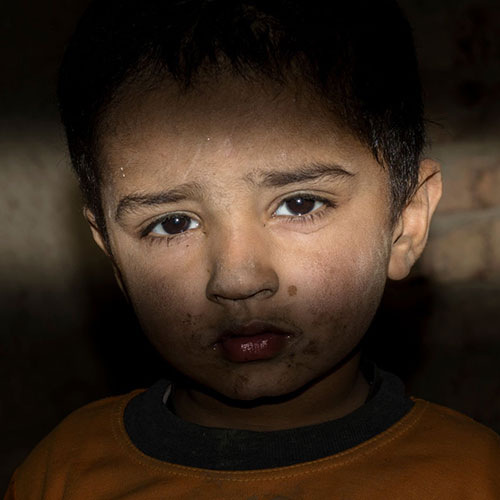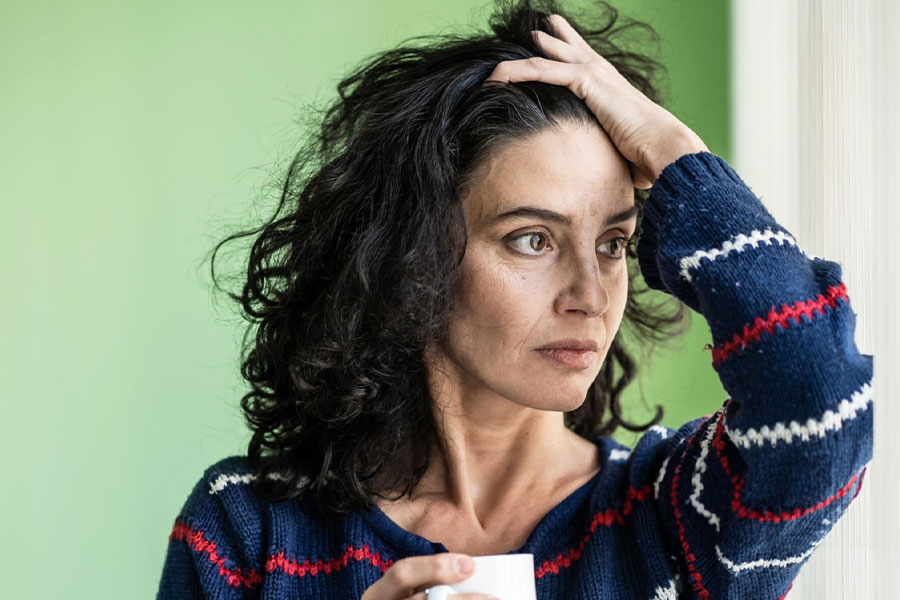
Welcome to Veda Rehab and Wellness, where we know how much PTSD can affect people and their families. Post Traumatic Stress Disorder is a mental health condition that can occur after experiencing or witnessing a traumatic event. These events can include combat, assault, natural disasters, or accidents. Symptoms of this condition can vary and may include flashbacks, nightmares, hypervigilance, avoidance behaviors, and intrusive thoughts.
At Veda, we know that people with PTSD face challenges. We are committed to providing compassionate and effective care for people seeking help for Post Traumatic Stress Disorder treatment and helping them heal and recover. Our goal is to improve their daily life and overall well-being. Our holistic approach integrates various therapeutic modalities to address the physical, emotional, and spiritual aspects of healing.
Feeling strong emotions after a traumatic event is normal. These feelings can be distressing. However, PTSD happens when these symptoms persist and start interfering with your daily routine.

Flashbacks are vivid and disturbing memories of a scary event that can make someone feel like they are experiencing it again." Flashbacks can happen suddenly when something reminds a person of a traumatic event, causing intense emotions and physical reactions.

People with PTSD often have nightmares about the traumatic event. This can make it hard for them to sleep well. This can also result in them feeling exhausted and distressed upon waking up. These nightmares may replay aspects of the trauma, causing significant emotional distress and interfering with restorative sleep.

Hypervigilance is a state of heightened alertness and awareness in which individuals constantly scan their environment for potential threats. Feeling constantly on edge can make you anxious, irritable, and have trouble focusing. Your body is always on high alert, ready to react to any potential threats.

Avoidance involves efforts to avoid people, places, thoughts, or activities that remind the individual of the traumatic event. Avoiding reminders of trauma can happen without us even realizing it—a way to protect ourselves from feeling overwhelmed by difficult emotions.

Aggressive behaviour in PTSD can manifest in various ways and is often a result of the individual's struggle to cope with overwhelming feelings of fear, anxiety, and stress. Flashbacks and triggers provoke intense reactions, leading to explosive outbursts and a heightened startle response. Conflict arises due to defensiveness and irritability, often resulting in tension and confrontations, impacting both the individual and those around them.

PTSD can lead to persistent negative beliefs about oneself, others, and the world, as well as changes in mood and emotional reactions. Individuals may struggle with feelings of guilt, shame, or worthlessness, and may have difficulty experiencing positive emotions or finding pleasure in previously enjoyed activities.
At Veda Rehab and Wellness, we take a comprehensive and individualized approach to treating PTSD. We understand that each person’s experience with PTSD is unique, and we tailor our treatment plans to address their specific needs and goals. Our approach integrates evidence-based therapies, such as cognitive-behavioral therapy (CBT), exposure therapy, Eye Movement Desensitization and Reprocessing (EMDR), and mindfulness-based interventions, to help individuals process their trauma, manage symptoms, and improve overall well-being.
Central to our approach is the concept of holistic healing, which recognizes the interconnectedness of the mind, body, and spirit. In addition to traditional therapy modalities, we offer complementary therapies, such as yoga, meditation, art therapy, and equine-assisted therapy, to promote relaxation, self-expression, and emotional regulation.
Our team of experienced clinicians, therapists, and support staff are dedicated to providing a safe, supportive, and non-judgmental environment where individuals can explore their experiences, learn coping skills, and work towards healing from trauma. We are committed to empowering individuals to reclaim their lives and move forward with hope, resilience, and strength.
At Veda Rehabilitation and Wellness, we approach the treatment of PTSD (Post-Traumatic Stress Disorder) with a comprehensive and personalized strategy, ensuring each client receives the best possible care tailored to their specific needs. Our multidisciplinary team, which includes psychiatrists, psychologists, therapists, and wellness experts, collaborates to provide an integrated treatment plan that addresses both the mind and body.
Initial Assessment and Personalized Treatment Plan
Upon arrival, each client undergoes a thorough assessment to understand their unique symptoms, trauma history, and overall mental health status. This initial evaluation is crucial in crafting a personalized treatment plan that effectively targets the individual’s specific challenges.
Evidence-Based Therapeutic Approaches
Our primary treatment modalities for PTSD include evidence-based therapies such as:
Integrative Wellness Therapies
Recognizing the importance of holistic healing, we incorporate various wellness therapies to support mental and physical well-being, including:
Pharmacotherapy
For some clients, medication may be an essential component of their treatment. Our psychiatrists carefully evaluate and prescribe medications as needed to help manage symptoms such as anxiety, depression, and insomnia, ensuring they are used safely and effectively.
Supportive Environment and Aftercare
We provide a safe and supportive environment where clients can feel secure and understood. Our facilities are designed to be calming and conducive to healing. Post-treatment, we offer robust aftercare programs, including ongoing therapy sessions, support groups, and access to resources to help clients maintain their progress and prevent relapse.
Continuous Monitoring and Adjustment
Throughout the treatment process, we continuously monitor each client’s progress and make necessary adjustments to their treatment plans. This dynamic approach ensures that the therapy remains effective and responsive to the client’s evolving needs.
At Veda Rehabilitation and Wellness, our mission is to empower individuals with PTSD to reclaim their lives and achieve lasting wellness through compassionate, comprehensive, and individualized care.